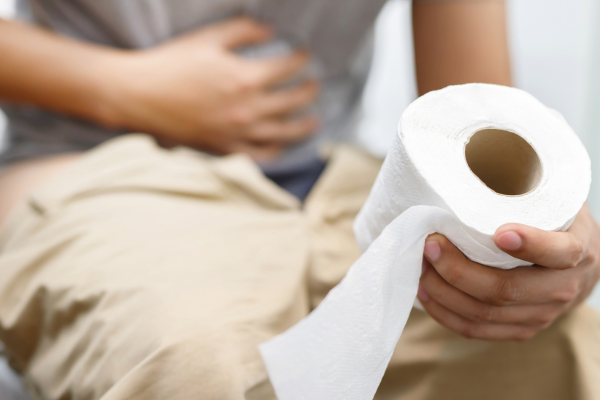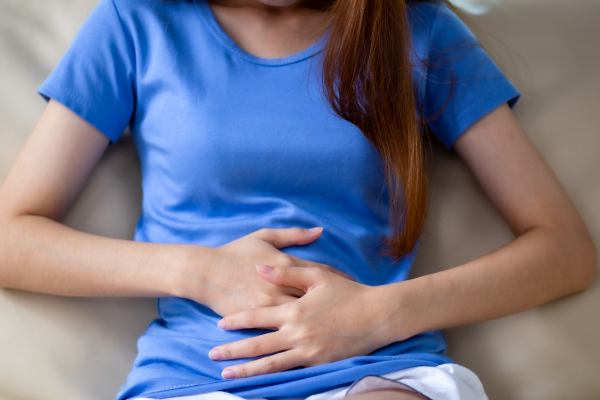Loose stomach (loose stomach), intestinal health and collagen

The Connection Between Loose Stomach (Loose Stomach), Gut Health, and Collagen: An In-Depth Review
Loose stools, or diarrhea, are a common digestive problem that can have many different causes. This means that stools are watery or loose, and the intestines move more quickly than normal. For some people, this can be an acute problem that goes away after a short period, while others may experience recurring or chronic episodes. Regardless of the cause, diarrhea affects quality of life and can lead to serious nutritional deficiencies, dehydration, and a general deterioration in gut health. In this article, we will explore the connection between loose stools, gut health, and collagen, and how these factors are linked to each other at both a microscopic and physiological level.
What is loose stomach/loose stomach?
Loose stools, or diarrhea, are a condition in which stools become watery and frequent. According to the World Health Organization (WHO), diarrhea is defined as three or more loose or watery bowel movements per day. Diarrhea can be acute, meaning it lasts for a few days, or chronic, meaning it lasts longer than four weeks. Diarrhea is often associated with faster-than-normal peristalsis, which means the intestines don’t have enough time to absorb fluids and nutrients from food.
Symptoms of loose stomach include:
-
Watery or loose stools
-
Increased frequency of bowel movements
-
Stomach cramps and pain
-
Bloating or gas
-
Nausea or a general feeling of discomfort
Diarrhea can be caused by several factors, including infections, food poisoning, stress, diet, medications, or underlying conditions such as inflammatory bowel disease (IBD) or irritable bowel syndrome (IBS). In many cases, it is an acute reaction to an infection or a certain food, but in some people, loose stools can become a chronic problem.
Gut Health: What is it and why is it important?
Gut health is a complex concept that encompasses several factors that affect digestion, nutrient absorption and waste elimination. A healthy gut is important for the body to process food efficiently while protecting against potentially harmful substances, pathogens and toxins.
1. Gut flora (Microbiome)
One of the most important components of gut health is the gut flora, which consists of trillions of microorganisms, mainly bacteria, that live in our intestines. These microorganisms are important for helping to break down food, produce vitamins, and protect the intestines from harmful substances. An imbalance in the gut flora (dysbiosis) can lead to digestive problems such as diarrhea, bloating, gas, and constipation.
A healthy and balanced gut flora can also improve the gut barrier function, which is the protective barrier that prevents harmful substances from entering the bloodstream. If this barrier is weakened, for example in the case of an unbalanced gut flora, it can lead to increased permeability to toxins and pathogens – a condition called leaky gut.
2. Intestinal motility and peristalsis
Intestinal motility, or peristalsis, is the rhythmic muscle movements that move food and stool through the digestive system. Normally, peristalsis is well-regulated to give the intestines enough time to absorb water and nutrients. In diarrhea, peristalsis is too rapid, which means that food does not have time to be processed properly and fluids are not absorbed effectively. This leads to loose stools and frequent bowel movements.
Disturbed motility can be caused by several factors, including stress, infections, hormonal changes, or disturbances in the intestinal flora.
3. Intestinal structural integrity and collagen
Another crucial component of gut health is the structure and integrity of the gut wall. The gut walls are made up of several layers of tissue that help support the functions of the gut. Connective tissue, which contains collagen, is an important part of the gut walls and plays a key role in giving the gut both strength and flexibility.
Collagen is a protein that makes up a large part of the body's connective tissue and gives tissues structure, strength and elasticity. In the intestine, collagen helps keep the walls strong, allowing the intestine to withstand the mechanical stresses that occur during digestion and the transport of food.
If collagen production decreases or if collagen fibers break down, the intestinal walls can lose their strength and flexibility. This can make the intestines more prone to inflammation, damage, or leaky gut, which can affect bowel function and contribute to diarrhea.
Collagen and its role in intestinal health
Collagen is essential for the structure, function and integrity of the gut. In the walls of the gut, collagen helps create a strong and flexible connective tissue that holds all tissues together and ensures that the gut can withstand mechanical stress, such as during peristalsis. Strong connective tissue is also important for the gut to hold stool in place and prevent fluid from leaking into the intestinal tract.
1. Collagen and the intestinal barrier function
Collagen is an important component of the intestinal barrier, the protective wall that prevents harmful substances from entering the bloodstream. Reduced collagen production or collagen breakdown can lead to a weakened intestinal barrier, allowing harmful substances and pathogens to more easily enter the body. This can lead to inflammation and a range of digestive problems, including diarrhea.
A weakened gut barrier can also increase the risk of leaky gut, where small holes or cracks form in the gut wall, allowing harmful substances to pass through. This can cause immunological reactions and lead to chronic inflammation, which in turn can affect gut health and contribute to recurrent diarrhea.
2. Collagen and intestinal motility
Collagen plays an important role in supporting intestinal motility. The walls of the intestine are not only muscular but also elastic and must be able to stretch and contract effectively during the digestive process. If the connective tissue and collagen products break down, the intestinal musculature can become too weak or stiff to maintain normal movement. This can cause irregular bowel movements or loss of effective peristalsis, leading to diarrhea or other digestive problems.
3. Collagen and inflammation
Collagen also has anti-inflammatory properties. In cases of intestinal inflammation – such as in conditions like irritable bowel syndrome (IBS) or inflammatory bowel disease (IBD) – collagen can help repair and strengthen the walls of the intestine. Inflammation in the intestine can cause loose stools, and by maintaining collagen production, you can prevent or reduce this inflammation and help restore normal bowel function.
Collagen and Loose Stomach: How can collagen affect treatment?
Maintaining healthy collagen production can have several positive effects on gut health and may be a potential strategy for managing loose stools. Here are some ways in which collagen can support gut health and relieve diarrhea:
1. Strengthening the intestinal barrier
By strengthening the intestinal barrier, collagen can help prevent harmful substances from entering the bloodstream and causing inflammation. A strong intestinal barrier is crucial to avoiding leaky gut, which can be a cause of recurrent diarrhea. Collagen can help improve barrier function and reduce the risk of immunological reactions that can lead to diarrhea.
2. Improved intestinal motility
Supporting collagen production can help improve intestinal motility and peristalsis, allowing the gut to process and transport food and stool more efficiently. This can help reduce the risk of diarrhea by ensuring that the gut is functioning in a balanced and efficient manner.
3. Reduced inflammation
Collagen has anti-inflammatory properties, and boosting collagen production can help reduce intestinal inflammation. This may be especially important for people suffering from inflammatory bowel disease (IBD) or irritable bowel syndrome (IBS), which are often associated with recurring diarrhea.
4. Collagen-rich supplements and foods
To increase collagen production, you can consume collagen-rich foods such as bone broth, fish with edible skin, eggs, or gelatin. Collagen peptide supplements are also an effective way to support gut health. By boosting collagen production, you can help your gut recover from inflammation and improve its function.
Conclusion
The connection between loose bowel, gut health and collagen is complex and intertwined. Collagen plays a crucial role in maintaining the structure, function and barrier of the gut, and reduced collagen production can lead to a weakened gut wall and an increased risk of loose bowel. By supporting collagen production, we can improve gut health and relieve symptoms of diarrhea, especially in inflammatory conditions or an unbalanced gut flora. A collagen-rich diet, as well as possible supplements, can be a good way to strengthen gut function and reduce the risk of digestive problems.






